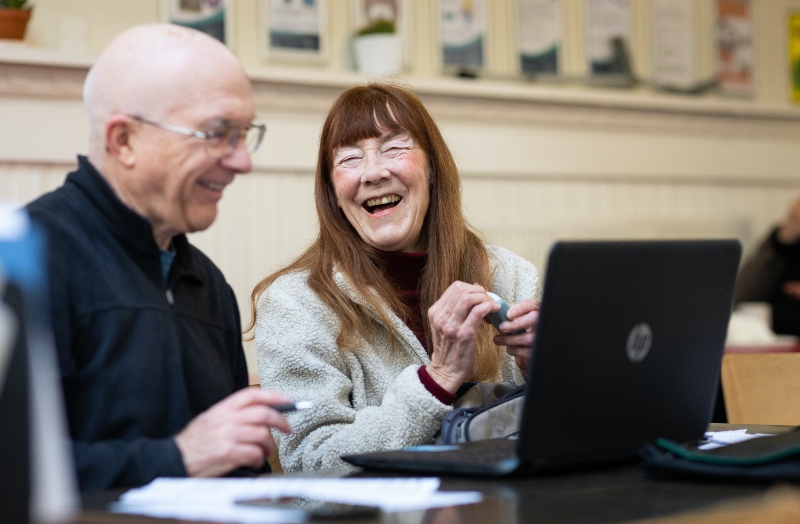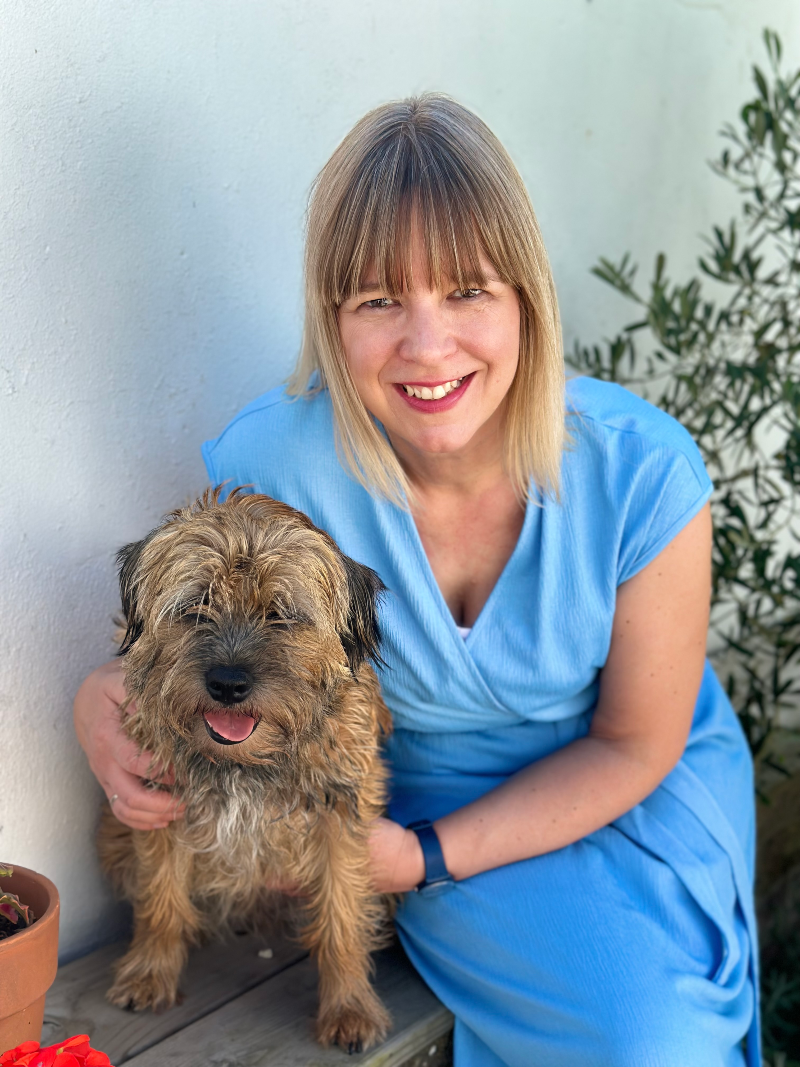'It's time to call out ageism'
Most of us will experience ageism, writes Alex Drew ahead of the International Day of Older Persons on 1 October. It's time to call it out in all the places we see it happen - and here's what churches can do

When I was 14 I was thrilled that I managed to convince the cinema ticket seller to let me into an 18 movie – I didn’t use words, I just stood there looking the part. You see, when I was young, I wanted to be older and look older, and so I used make up and clothes, and what I presumably intended to be some level of sophistication to convince people and myself that I fitted in with the older crowd. Being taken for older or more mature didn’t just get me in places, it commanded respect, some of my ruminations were even taken for wisdom and I was considered grown up. I loved it.
I don’t know when the shift happened, maybe in my 30s, but suddenly I changed my mind; I didn’t want to look older and be older anymore. I wanted to look younger and be younger.
You see, it hadn’t taken the world long to convince me that youth should be my goal. It did this by having 13-year-olds promote anti-ageing potions; showing me how to apparently ‘reduce the fine lines of ageing’, of which of course they had none. It portrayed older tv characters as miserable and often ridiculous. Even in my own circles people began to regret another birthday and lie about their age. And suddenly forgetting why we walked into a room became known as a senior moment – as if we haven’t been walking into rooms forgetting why since we were children.
Sounds harmless, doesn’t it?
Fast forward a few more years and I can expect to be treated differently at work, to be patronised, and even considered a burden because others in our society have been brought up with the same negative attitudes about ageing as I was. The idea that ageing is something to be feared and that younger is better than older. And because they’ll believe the hype, I’ll be discriminated against; in subtle ways and in ways more distinct.
It will affect my self-esteem, my health, my sense of purpose, the way I experience day to day life when I’m older and may even lead to an earlier death for me.
It's called Ageism. A social construct that brings together stereotyping, prejudice, and discrimination.
And the way things are going most of us will experience ageism, in society, and even in the church.
It comes from poor examples set us by others in their attitudes and use of language, it comes from fear of death and of ageing, and it comes from denial – not facing up to the fact that ageing will likely happen to us too.
It seeps into our culture when we don’t call it out.
It’s madness really, as if anyone can help ageing. Whether we’re 3 years old, or 17, 42, 68 or 91, most of us will get older. Hallelujah. God designed us to age.
And that’s a good thing. Ageing means living. Life is the antidote to death. And the Bible tells us that age is a divine blessing – it’s God’s glory revealed through his creation – you and me.
There’s no ageism in the Bible. We’re called to love our neighbours as ourselves. God has no favourites. We are all loved equally, and nobody has cause to put themselves above another.
We see people like Moses, Joshua and Anna living incredible lives for God well into old age.
In the scriptures age distinguishes people in a good way – the wisdom and experience gleaned over a lifetime, shared with younger generations, who are honoured and privileged to learn from those in later life.
In 1 Timothy we’re reminded not to rebuke an older man harshly but exhort him as if he were our father…and to treat older women as mothers.
And Jesus who regularly spoke out on behalf of those on the margins, led us in a beautiful example when he prioritised and entrusted the care of his mother to John even from the cross. A reminder that we’re to make good provision for the welfare and care of older people in our midst.
It’s time to call out ageism in all the places we see it happen. And it’s time for us to be honest with ourselves if we are negative about ageing and at times, without meaning to, we too may have deep seated ageist thoughts. It’s time to stand up and be counted.
That shouldn’t be hard, much like in the Bible, when we take the time to notice, we see that our communities are filled with people in later life living to the full; taking risks, looking after themselves, learning new things, supporting their families financially and practically, being creative, keeping fit, praying for their neighbours, and still going on new adventures. Isn’t it wonderful?!
Although not entirely exempt from ageism, the church already leads in a wonderful example – where else in society do we see such an army of older people engaged in effective preaching, mentoring, children's work, serving on trustee boards, welcoming, mass catering, praying, and more?
But as with all areas of life, we can always do better, and when it comes to ageism, we have a vested interest to do so – after all – we’re all getting older.
What churches can do
Here are some things churches can do to help fight ageism:
-
Understand and celebrate the age profile of your membership
-
Identify leadership for ministry among older people
-
Promote involvement of older people at all levels and in all areas of church lifeLet’s stop the world from convincing us that younger is somehow better than older. It’s different, that’s all. Instead, let’s convince the world of God’s view of ageing; that it’s a crown of glory bestowed on us by the ancient of days himself.
1 October - International Day of Older Persons (IDOP)
This year the International Day of Older Persons, led by the UN, is calling for the fulfillment of the promises of the Universal Declaration of Human Rights for Older Persons. The Bible is clear that age and experience have value, and churches are well positioned, experienced and motivated to express genuine love and care for older people, to reject ageism, and to encourage and facilitate meaningful and purposeful engagement into later life.
We encourage churches to pray for older people on 1 October and to use this opportunity to raise awareness and celebrate their older friends.
Here are some helpful links:
Write to your MP
Faith in Later Life has submitted an Early Day Motion in Parliament…
That this House, celebrating the International Day of the Older Person this week, equally celebrates the contribution of Christian charity, Faith in Later Life and its partners to change the societal narrative of ageism towards older people as called for by the United Nations and acknowledge the contribution of church champions and volunteers across the country making a difference at a local level to ensure that all older people are enabled to flourish in the church and more importantly, wider society, both now and in the future.
We encourage individuals to write to their MP asking them to sign this Early Day Motion to add voice to the work being done to address the important area of ageism in our society, and to which the church is seeking to take a lead in changing. There is a template letter here.
 Alex Drew is the new Lead Officer at the Christian charity Faith in Later Life, which seeks to inspire and equip Christians to reach, serve and empower older people in every community, through the local church.
Alex Drew is the new Lead Officer at the Christian charity Faith in Later Life, which seeks to inspire and equip Christians to reach, serve and empower older people in every community, through the local church.
Alex previously worked with Webnet, and has written this piece for the Seventy-Two blog
Do you have a view? Share your thoughts via our letters' page.
Baptist Times, 20/09/2023